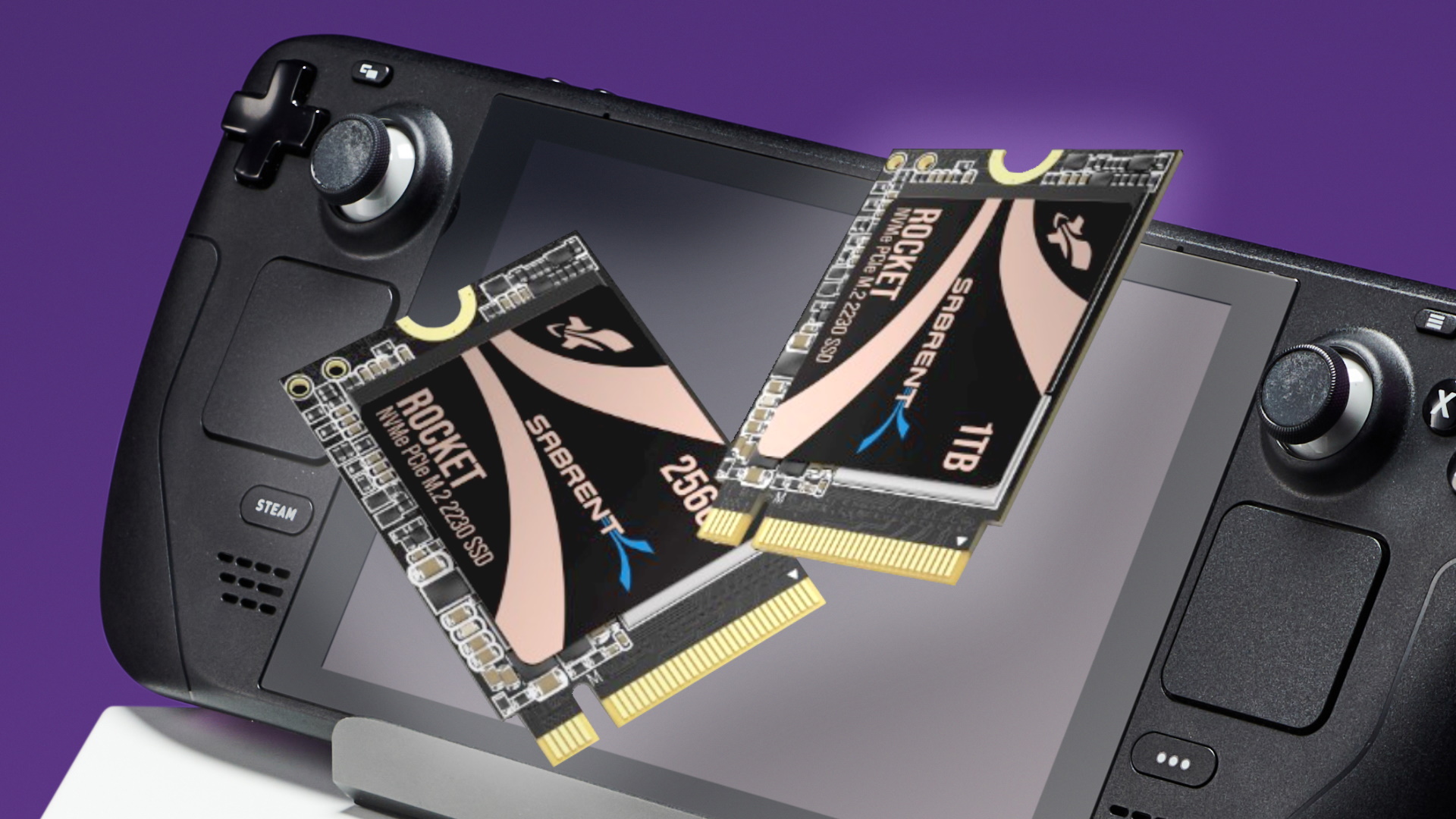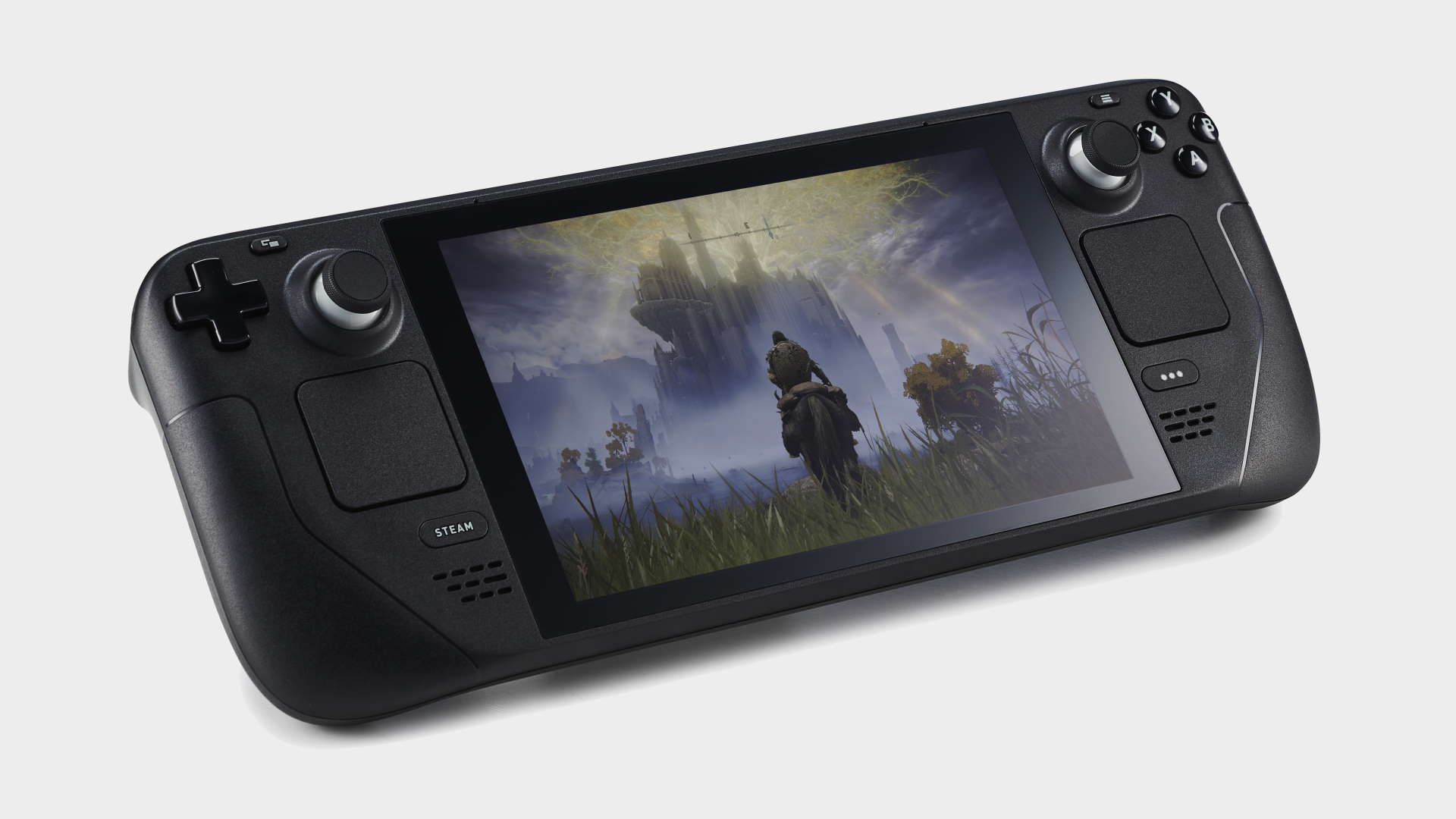Sabrent may have just dropped the Steam Deck NVMe SSD of my dreams
This should reduce your need to risk buying some OEM SSD without a warranty.

Sabrent has just brought us a new solution to slow Steam Deck SSD speeds you may be experiencing, in the form of the Rocket 2230—a small form factor PCIe 4.0 NVMe SSD that will fit snugly into your Steam Deck. It comes in 256GB, 512GB, and 1TB capacities, and may well be the mini PCIe Gen 4 SSD I've been waiting for.
For some time, Steam Deck users have been clawing for better NVMe SSD solutions, since even some SD card speeds rival the SSD inside our beloved Valve gaming handheld. But finding an SSD in the correct form factor that's trustworthy, speedy, and readily available has proven a more difficult task than we expected.
Of course, there have been a few modders who thought "I know, I'll just jam a 2242 drive into the Steam Deck's 2230-size M.2 slot because I'm smart and Gabe can suck it." The Steam Deck designers have warned us, however, that a move like that "will significantly shorten the life of your Deck."
Back to looking for a 2230 NVMe drive, then.
While Sabrent is not the first manufacturer to have come out with an M.2-bound SSD in the 2230 form factor, most can't match the kind of speeds we see in larger form factor SSDs.
Samsung has its own 2230 solution in the form of the PM991, coming in with around 2,400 MB/s read, and 1,950 MB/s write speeds—that's not great, honestly. Dell gave us the Class 35 2230 NVMe SSD which I honestly can't even find reviews for, so who knows the speeds it's meant to give you (you can see why this whole thing is a bit of a mess).
The main takeaway is that small form factor NVMe SSDs out in the wild are rare, and mostly only Gen 3.
The biggest gaming news, reviews and hardware deals
Keep up to date with the most important stories and the best deals, as picked by the PC Gamer team.
Kioxia did update it's lineup of 2230 SSDs to include the PCIe 4.0 BG5 series in November of 2021, though the 1TB model is only rated at sequential read/write speeds of 3,500 MB/s and 2,900 MB/s, respectively, which could well be left in the dust if Sabrent's latest claims are anything to go by.
The Gen4 Sabrent Rocket 2230 is said to give up to 3 times the Steam Deck's write performance, with claimed 4,750MB/s read speeds, and 4,300MB/s write speeds.

Steam Deck review: Our verdict on Valve's handheld PC.
Accessories for the Steam Deck: Get decked out
Steam Deck availability: How to get one.
Steam Deck battery life: What's the real battery life of the new device?
Steam Deck - The emulation dream machine: Using Valve's handheld hardware as the ultimate emulator.
In Valve's official teardown video, the company shows you how to safely remove the Steam Deck SSD, though it does come with a warning:
"An off-the-shelf SSD could cause problems." Power consumption increases are one potential issue which "could cause overheating and reduced battery life."
Swapping the SSD could also cause electromagnetic and mechanical interference, Valve notes. Tthe SSD is close to the Wi-Fi and Bluetooth module, as well as some other components, and since a new SSD might have a "different emissions pattern," that could mess up your connectivity, or stop some other components working properly by simply vibrating wrong.
The thermal module is also closely connected to the SSD, so please don't mess around with it unless you're confident you know what you're doing.
With that disclaimer out of the way, Sabrent tells us the Sabrent Rocket 2230 "will be arriving in our warehouse very soon." Though there's no word on pricing. Either, way, we should be getting one in for testing soon, so wish me luck in swapping in that bad boy. You should have some Steam Deck benchmarks to look over soon, provided I don't completely brick our review Deck.

Screw sports, Katie would rather watch Intel, AMD and Nvidia go at it. Having been obsessed with computers and graphics for three long decades, she took Game Art and Design up to Masters level at uni, and has been rambling about games, tech and science—rather sarcastically—for four years since. She can be found admiring technological advancements, scrambling for scintillating Raspberry Pi projects, preaching cybersecurity awareness, sighing over semiconductors, and gawping at the latest GPU upgrades. Right now she's waiting patiently for her chance to upload her consciousness into the cloud.

